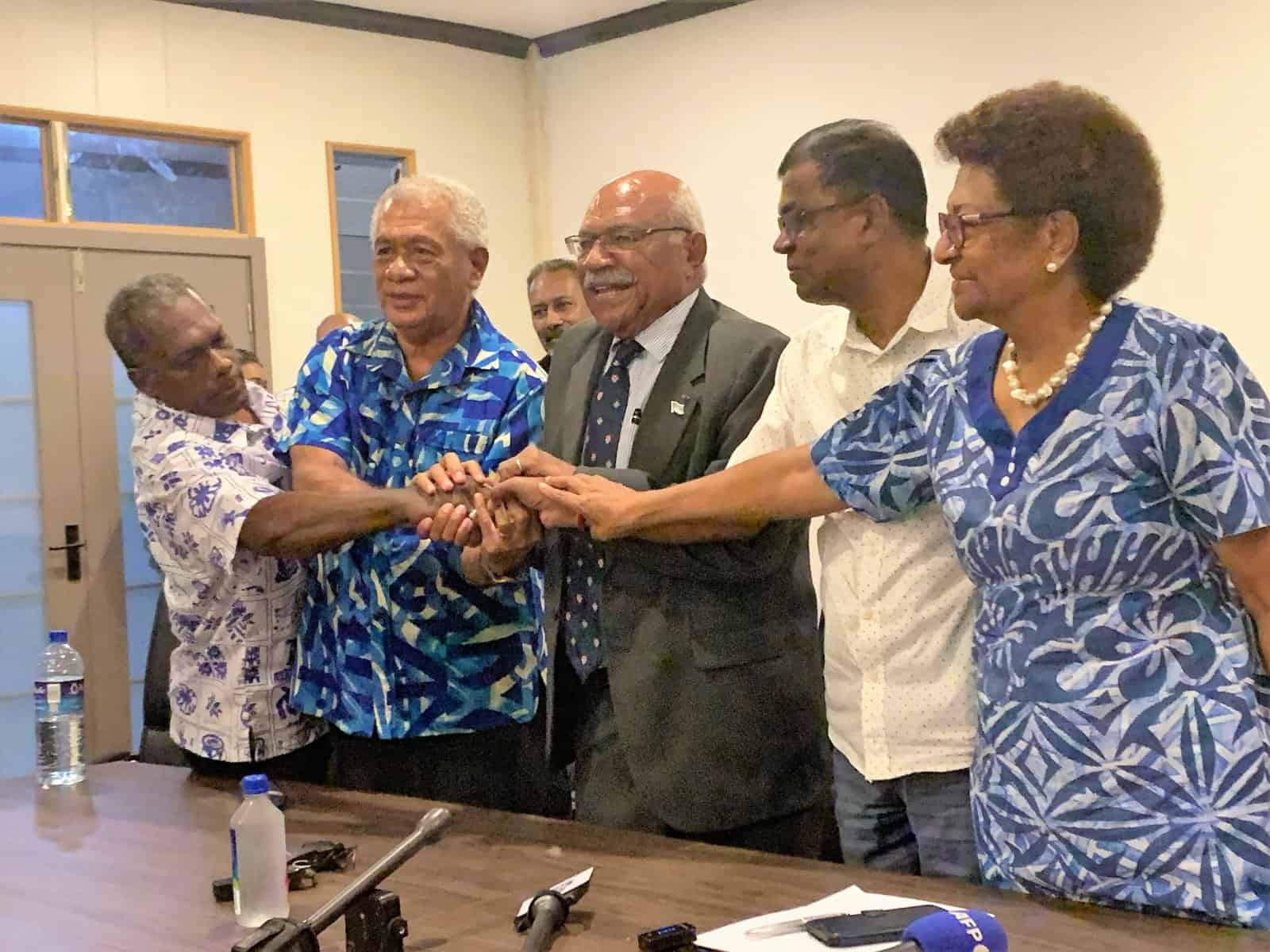On Christmas Eve, Fijians at home and abroad paused in their Christmas preparations to watch the country’s newly-minted parliamentarians vote for their new Prime Minister.
It followed days of delicate negotiations between rival coalitions and courting of the Social Democratic Liberal Party (SODELPA), which won three seats in Fiji’s 55-member house, giving them the balance of power.
In the end, former Prime Minister Sitiveni Rabuka prevailed, with a single vote majority and the backing of his People’s Alliance Party (PAP), the National Federation Party (NFP) and SODELPA. It’s a . . .
Please Subscribe to view full content...
